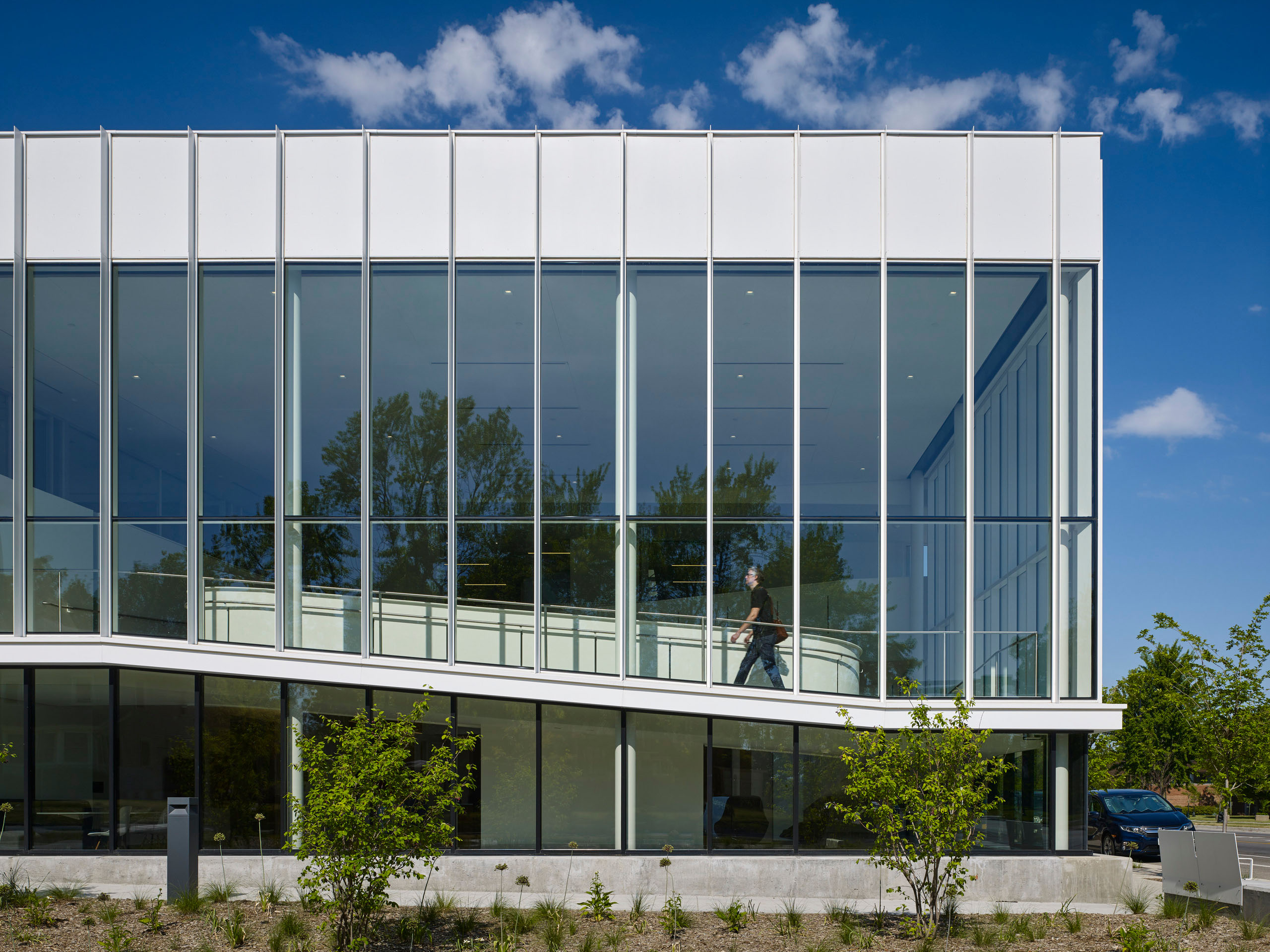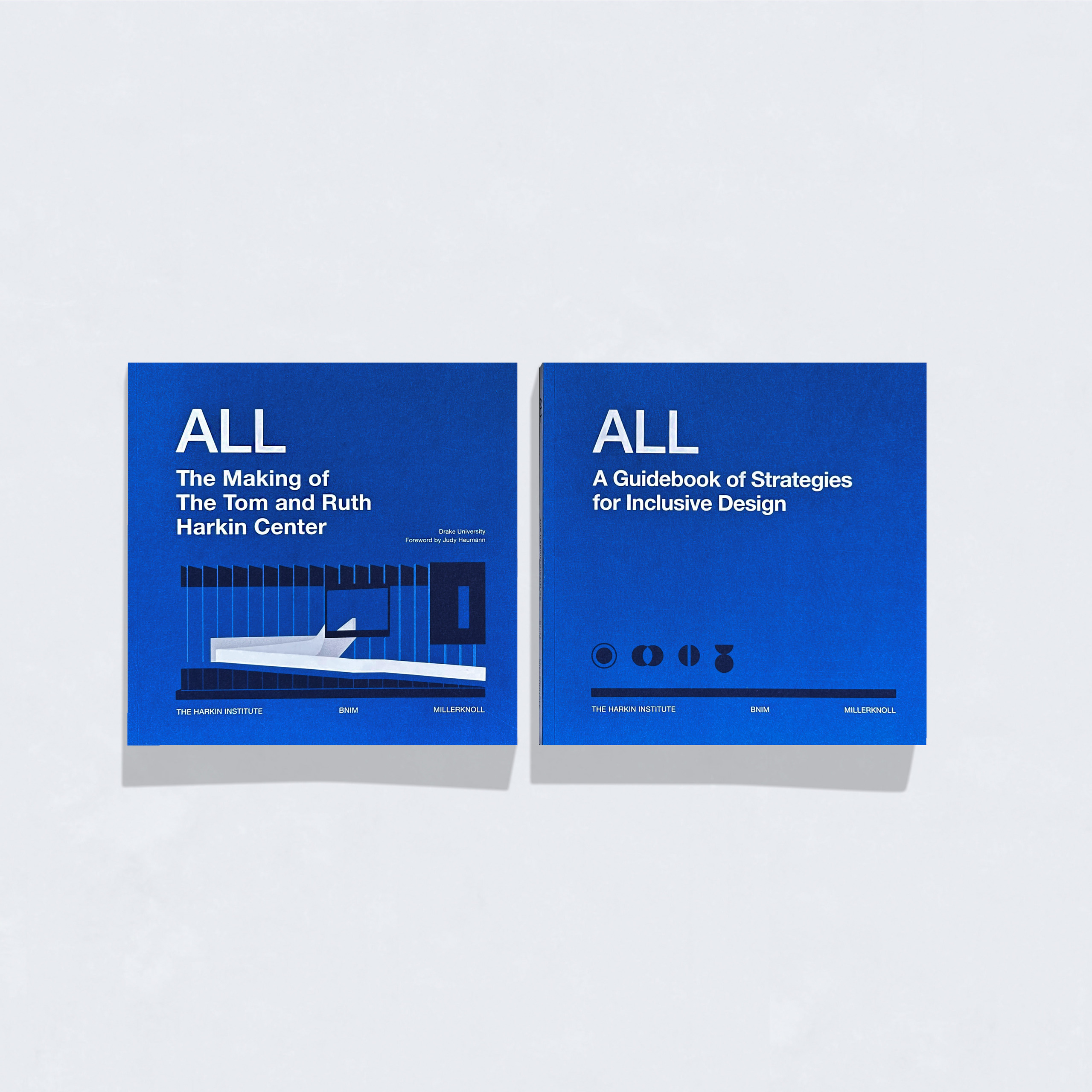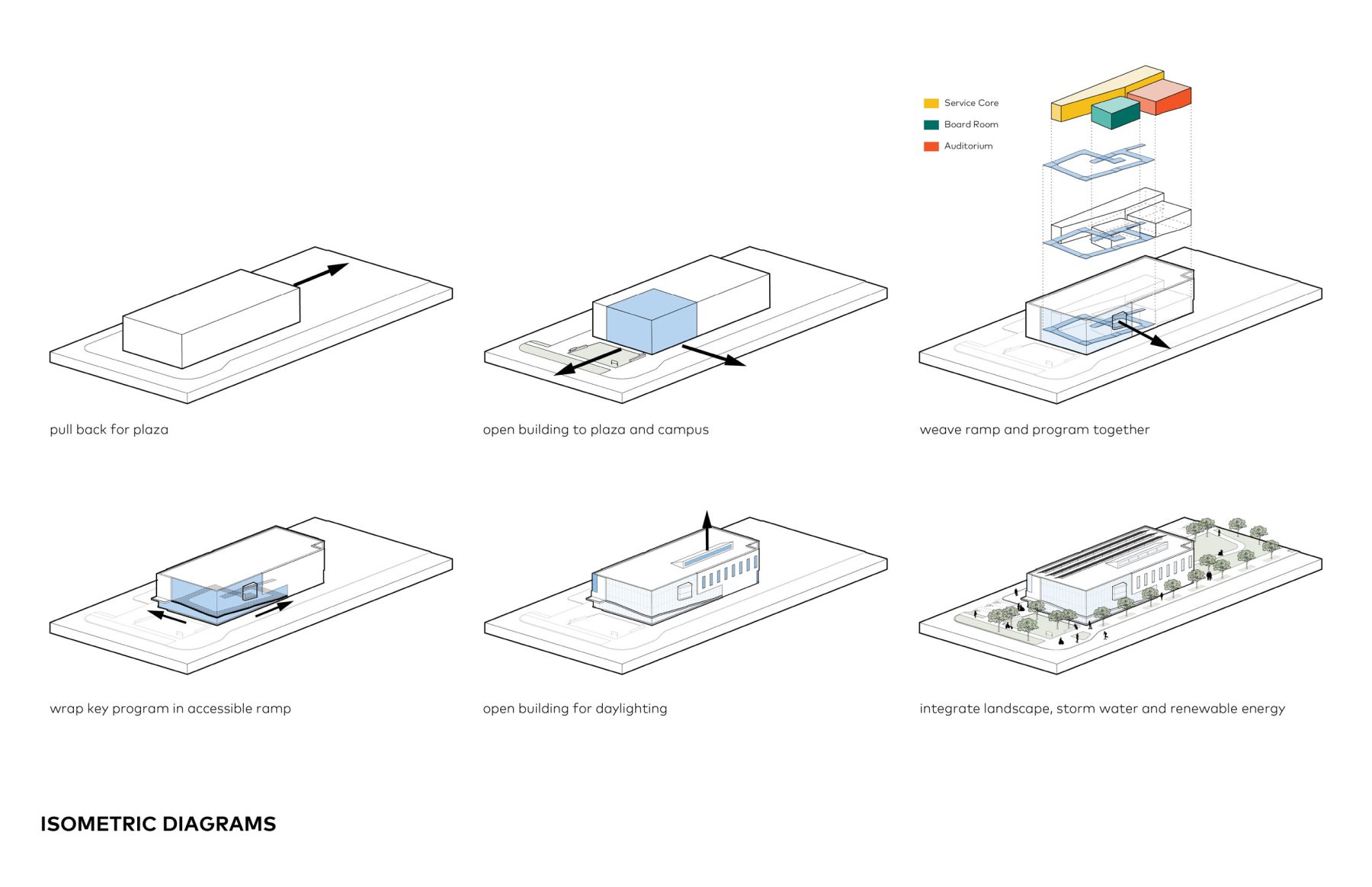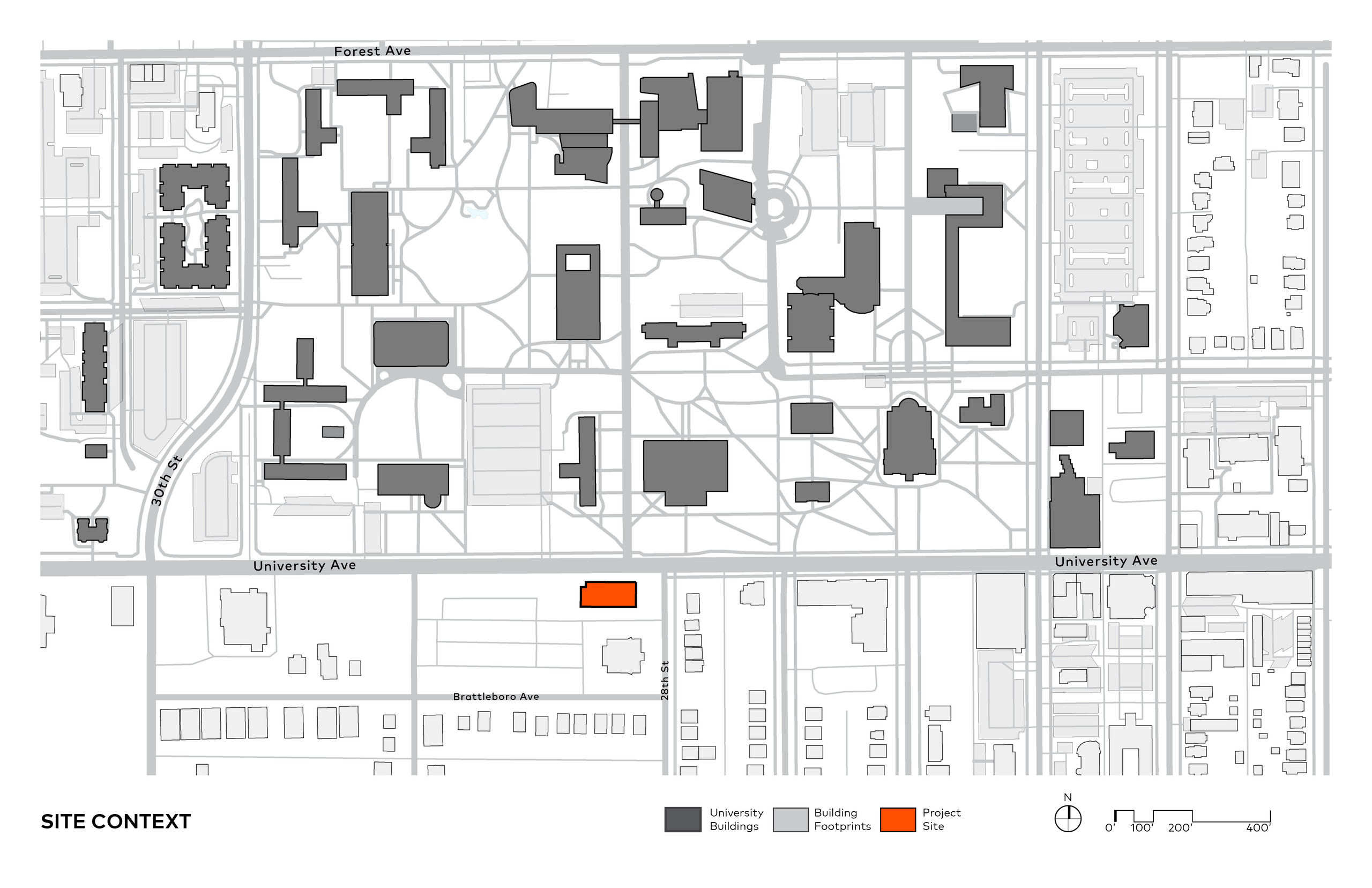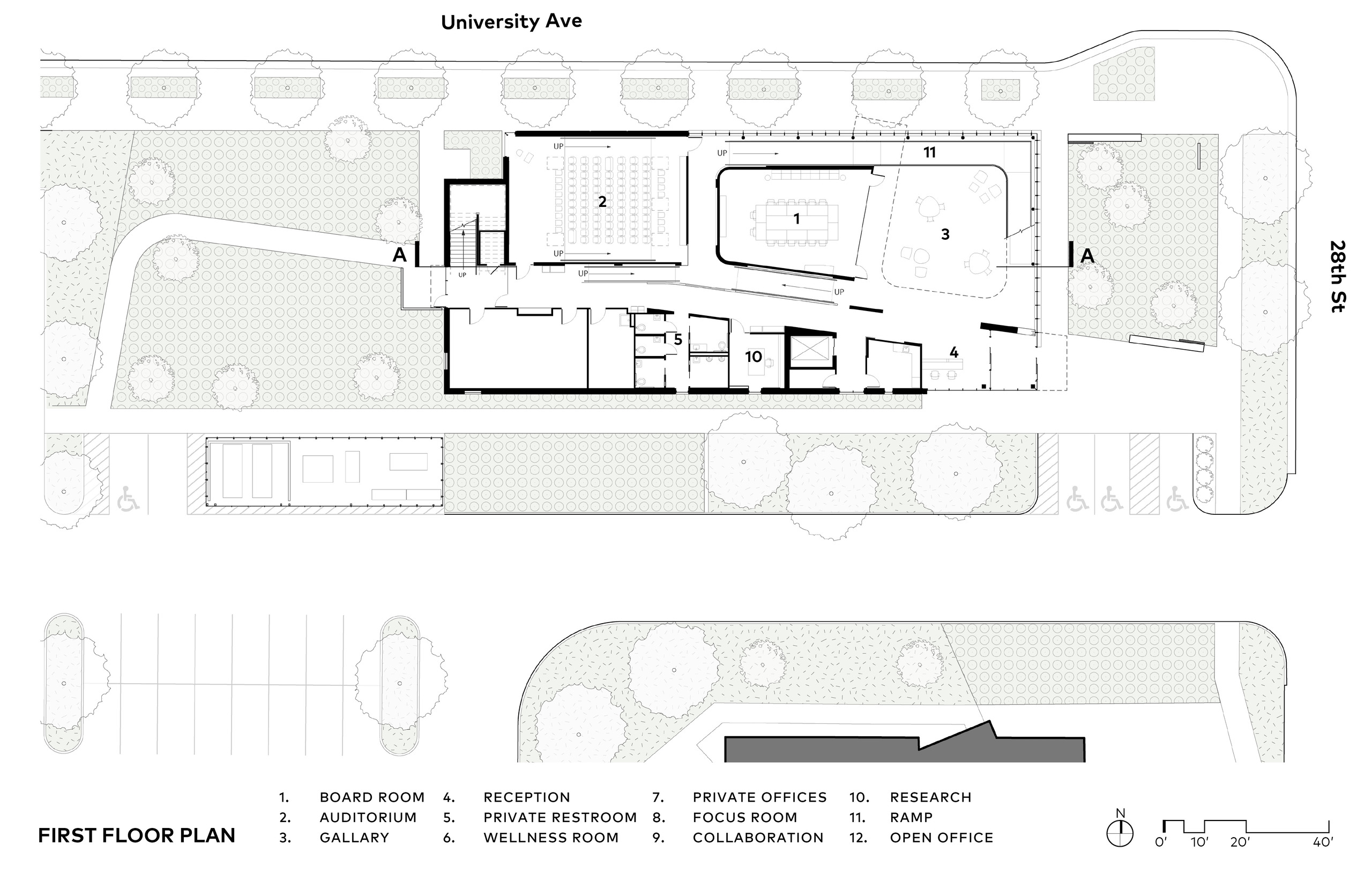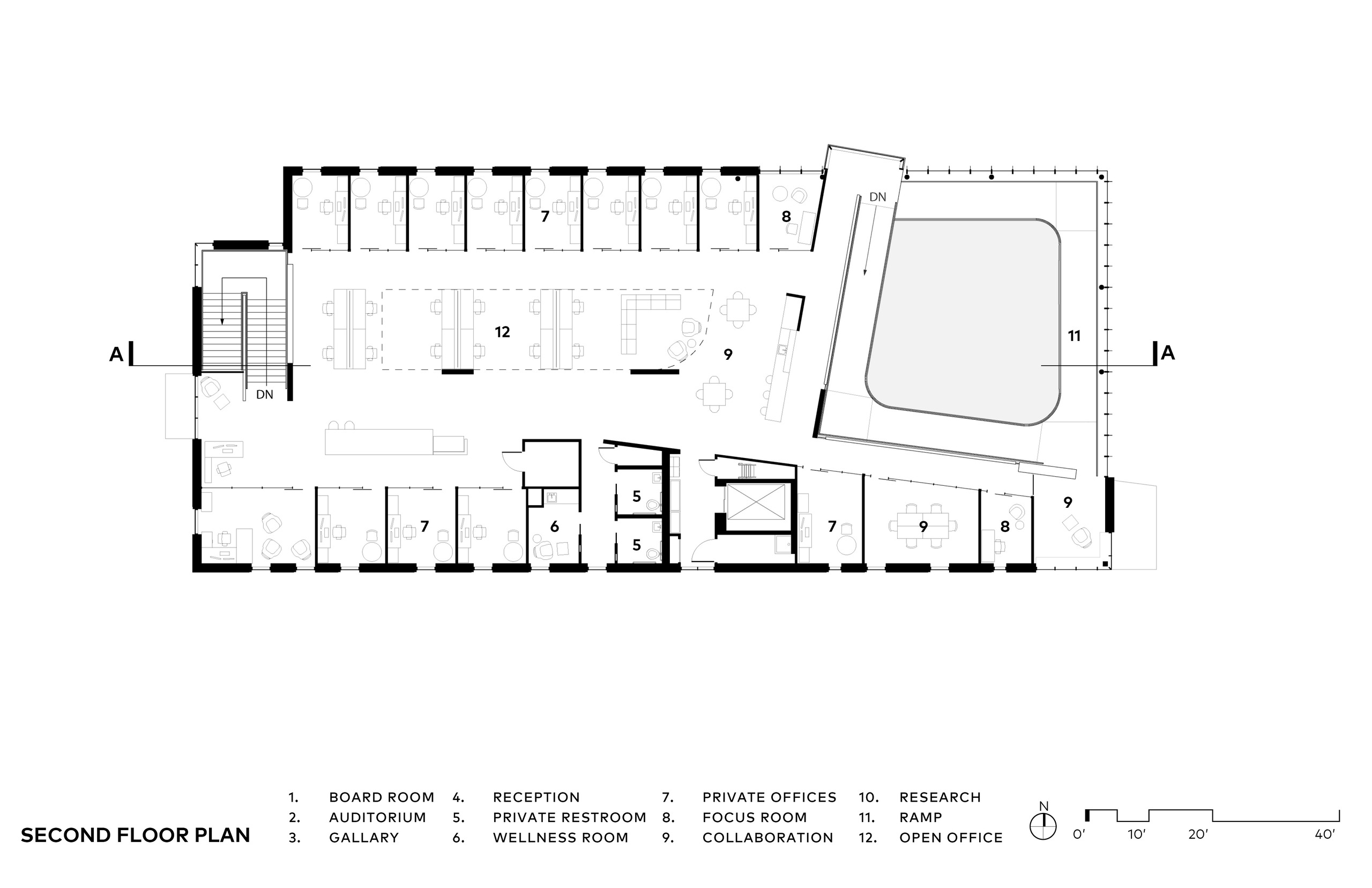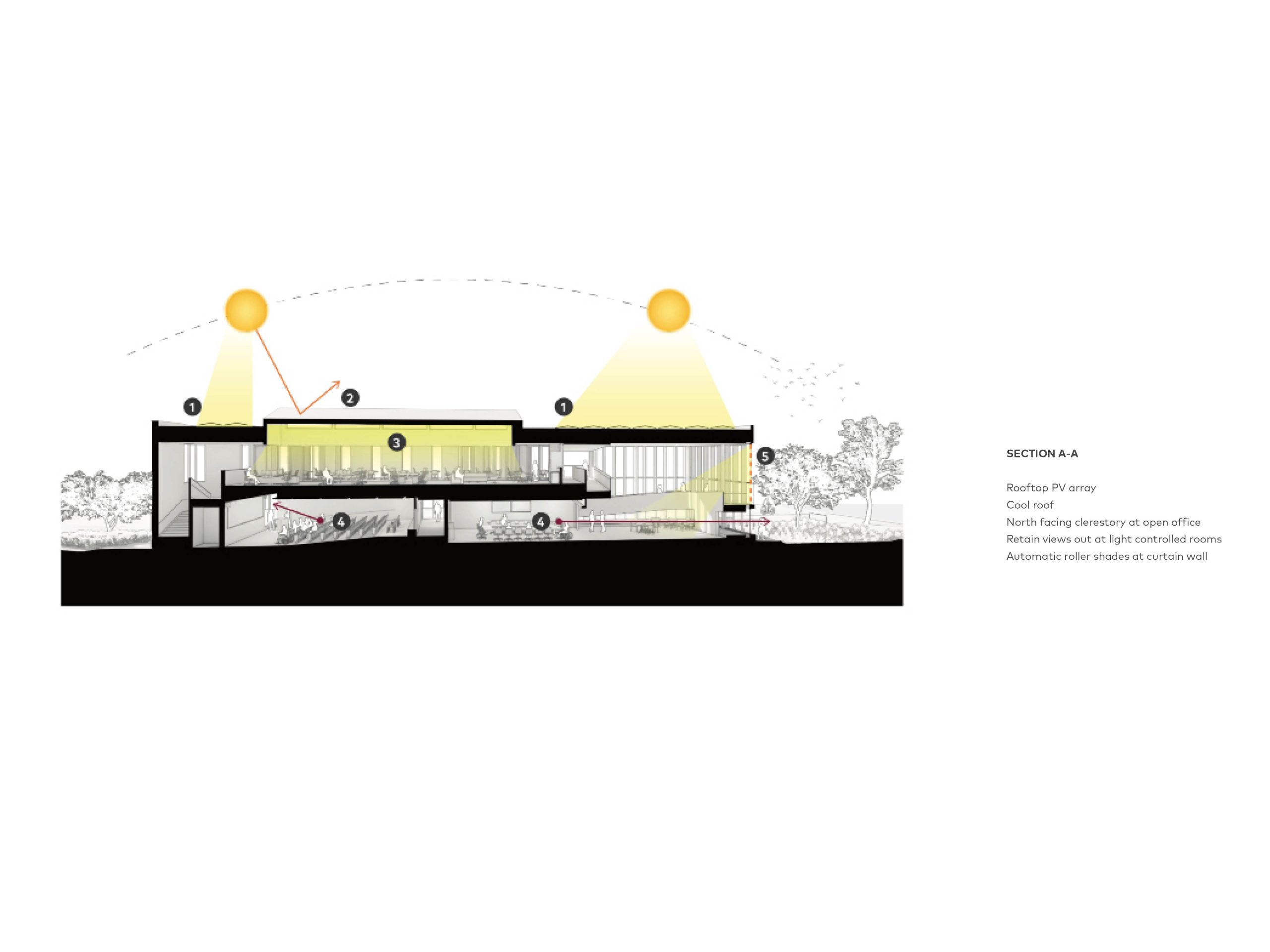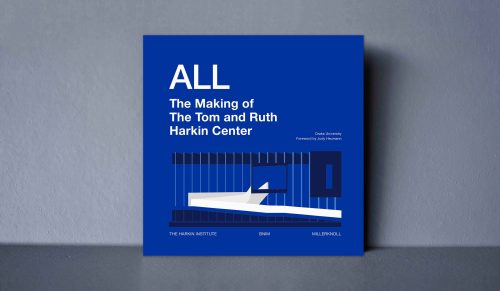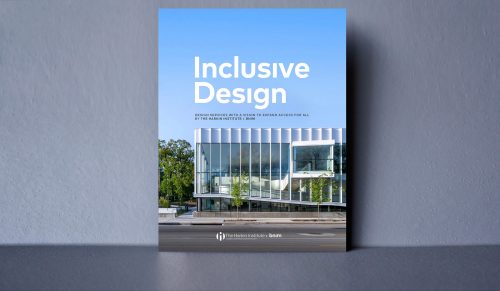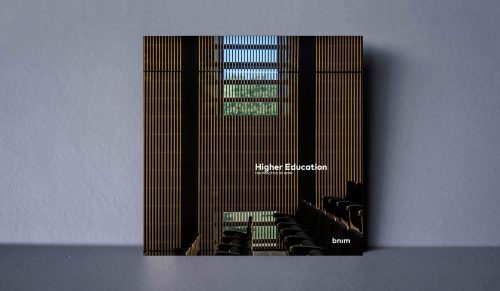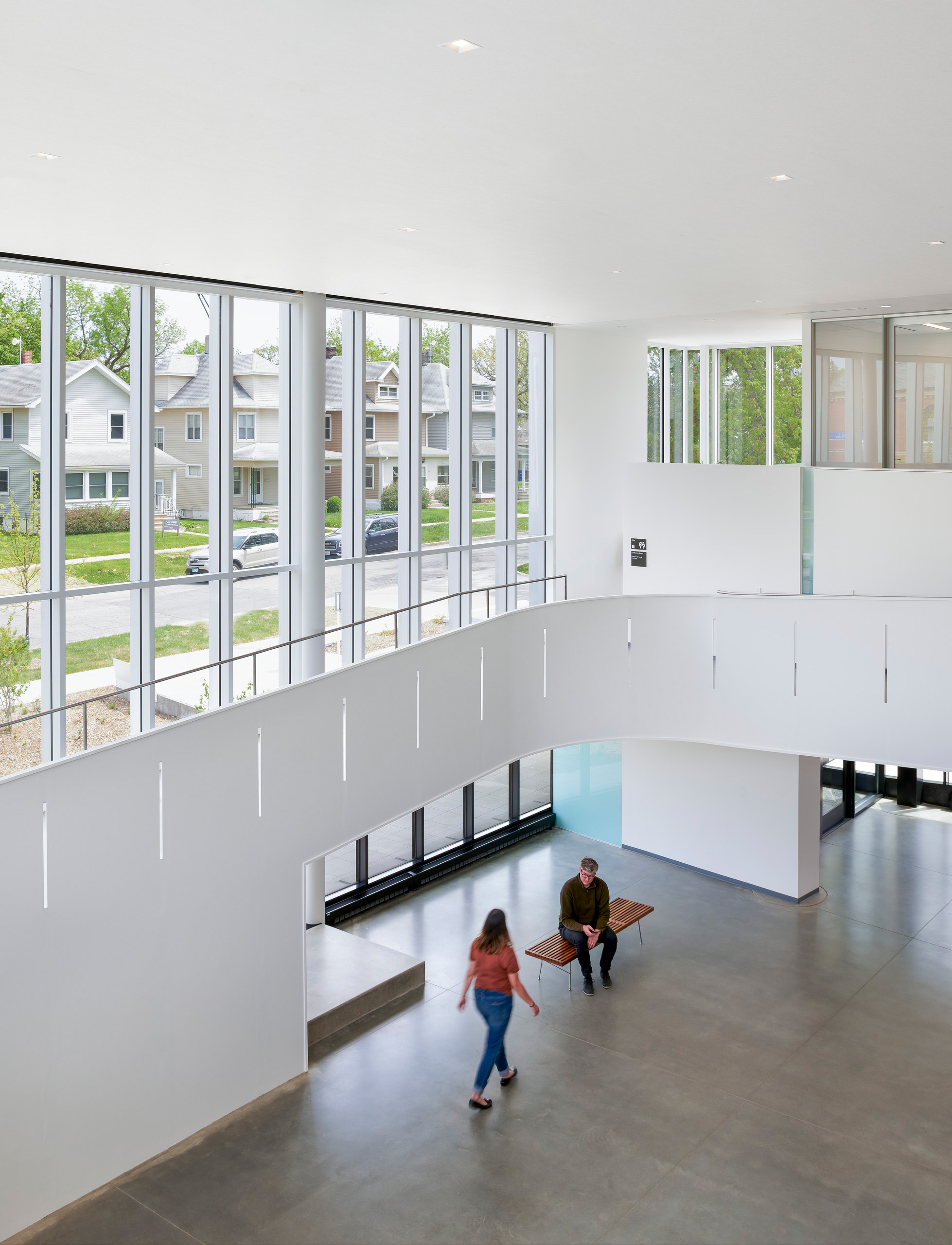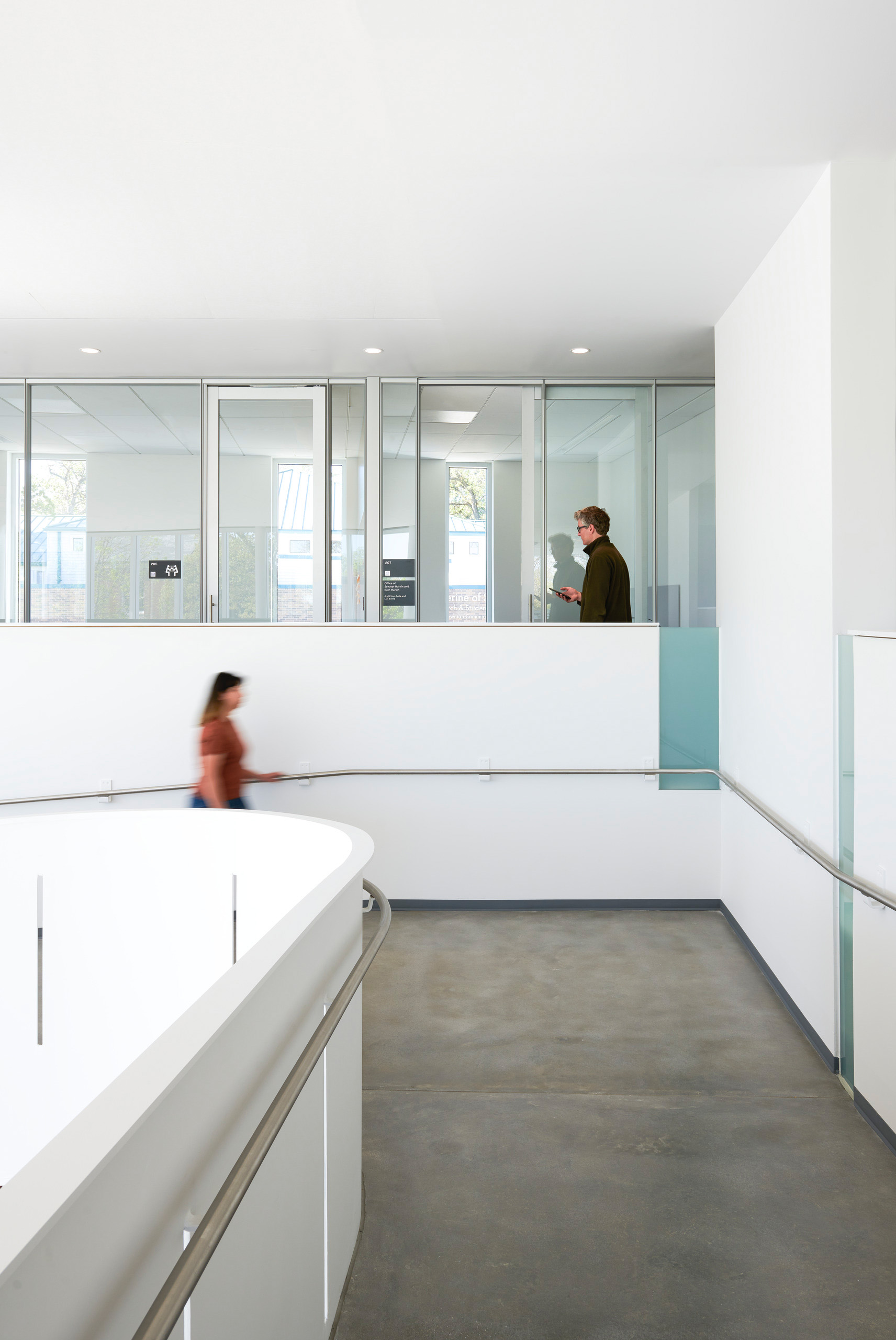Drake University
Tom and Ruth Harkin Center
A center for public policy and citizen engagement setting new standards in Inclusive and Universal Design.
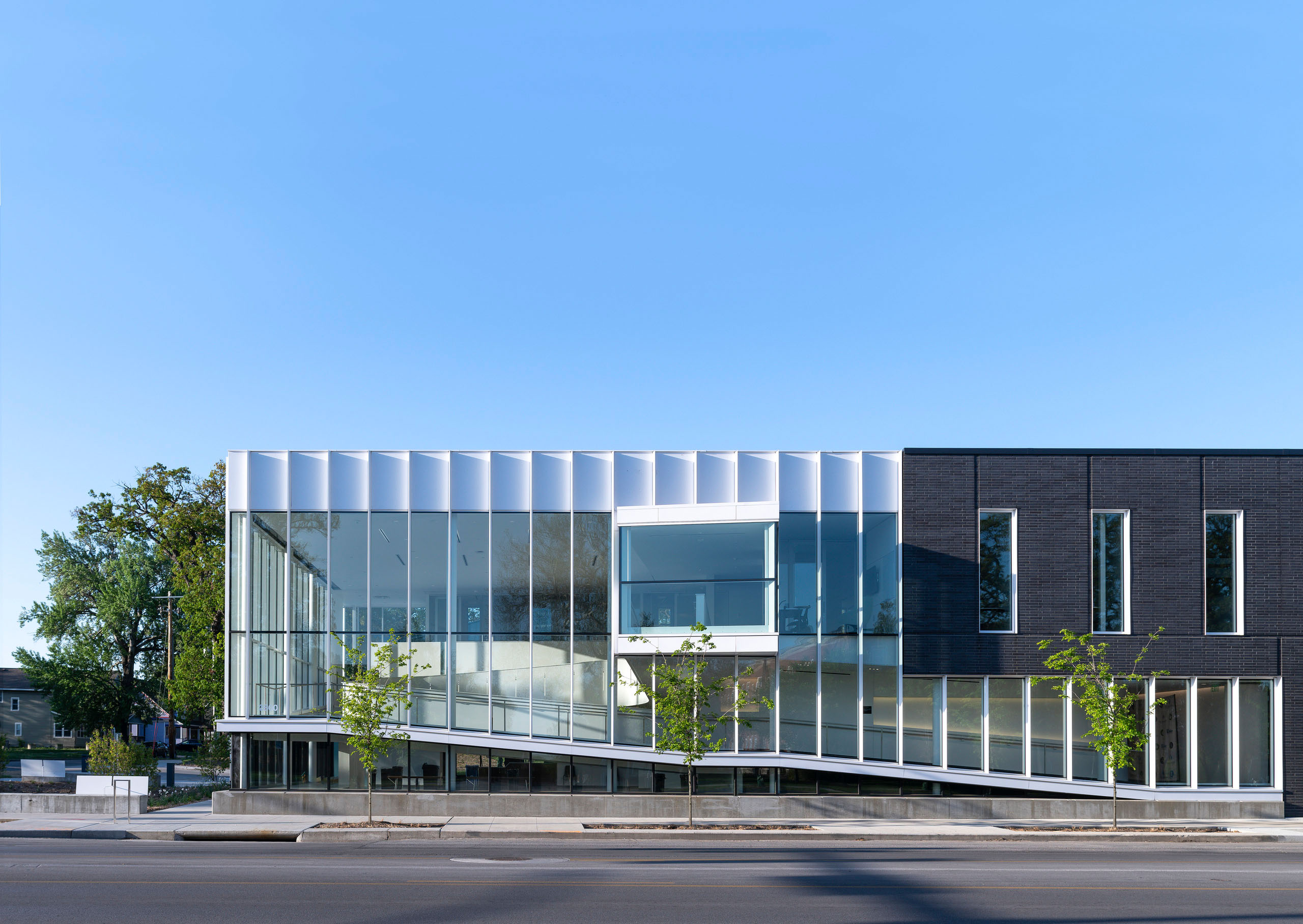
Information
- Location Des Moines, Iowa
- Size 16,768 SF
- Completion 2020
Founded in 2013, the Harkin Institute seeks to improve the lives of all Americans by giving policymakers access to high-quality information and engaging citizens in the formation of public policy while promoting the issues to which Senator Tom Harkin devoted his career, including his historic legislation, the Americans with Disabilities Act. The Tom and Ruth Harkin Center on the Drake University campus in Des Moines, Iowa, is a new home for the Harkin Institute. The building embodies a gracious spirit of place and is organized so that access for all people is woven into the architecture without feeling like accommodations are after-thoughts or obligations. The building provides for public and social settings on the main floor with views and access to exterior entrance landscapes and plazas. The upper floor provides a spectrum of focus and collaborative spaces for Harkin Institute staff, students, and visiting scholars. All of these spatial elements are stitched together with a graceful, ramped path that provides not only common practical and elegant access to both floors but a symbolic visual sinew for the building.
Impact + Innovation
The Tom and Ruth Harkin Center aims to embody the Harkin Institute’s values and mission by setting a new standard in Inclusive Design and engaging the University and community in a dialogue of equity and empathy. The strategies for inclusive design implemented in the Tom and Ruth Harkin Center support all building users’ experiences, implementing principles of generous space, equitable experiences, clear path, and individual empowerment. Generous spaces ensure individuals do not have to ask for accommodations, providing appropriate path widths and places to rest. Equitable experiences create necessary functional solutions in the most inclusive way possible. Design features such as meeting rooms with circular table arrangements and single-user restroom access help demonstrate how to provide equal opportunities for all building users. A clear path allows for an environment that is intuitive to the building user, from how an individual enters a building to how room signage communicates the right information in an effective, accessible format. Individual empowerment means there are no limitations in one’s ability to use a space. This means providing spaces such as wellness rooms or creating variety in furniture configurations to allow for choice throughout a facility.
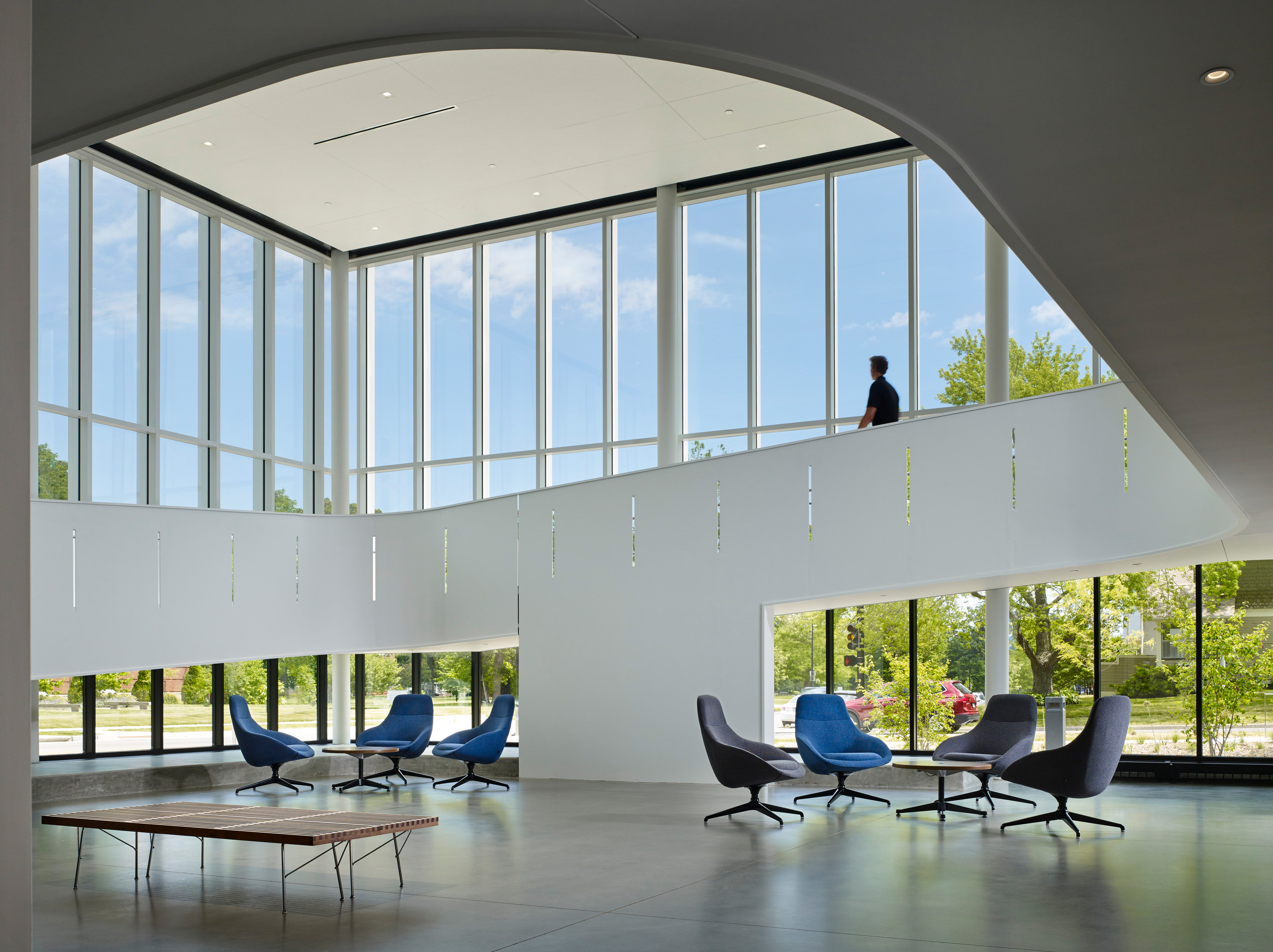
Process
BNIM’s design team leaders worked closely with the Harkin Institute and the disability community to understand needs not being met in built environments, posing a key question — What barriers still exist today? The answers that emerged from these discussions, disability policy meetings, and research provided deeper insight into how design can better address challenges and barriers faced by the disability community. This process also helped inform BNIM’s and the Harkin Institute’s work on a collaborative publication entitled ALL: The Making of the Tom and Ruth Harkin Center that provides a unified approach and guiding principles for universal and inclusive design that exceed current ADA requirements by recognizing the broad spectrum of human need rooted in inclusion, empathy, and equity.
Sustainability
People
Team
Client
Drake University

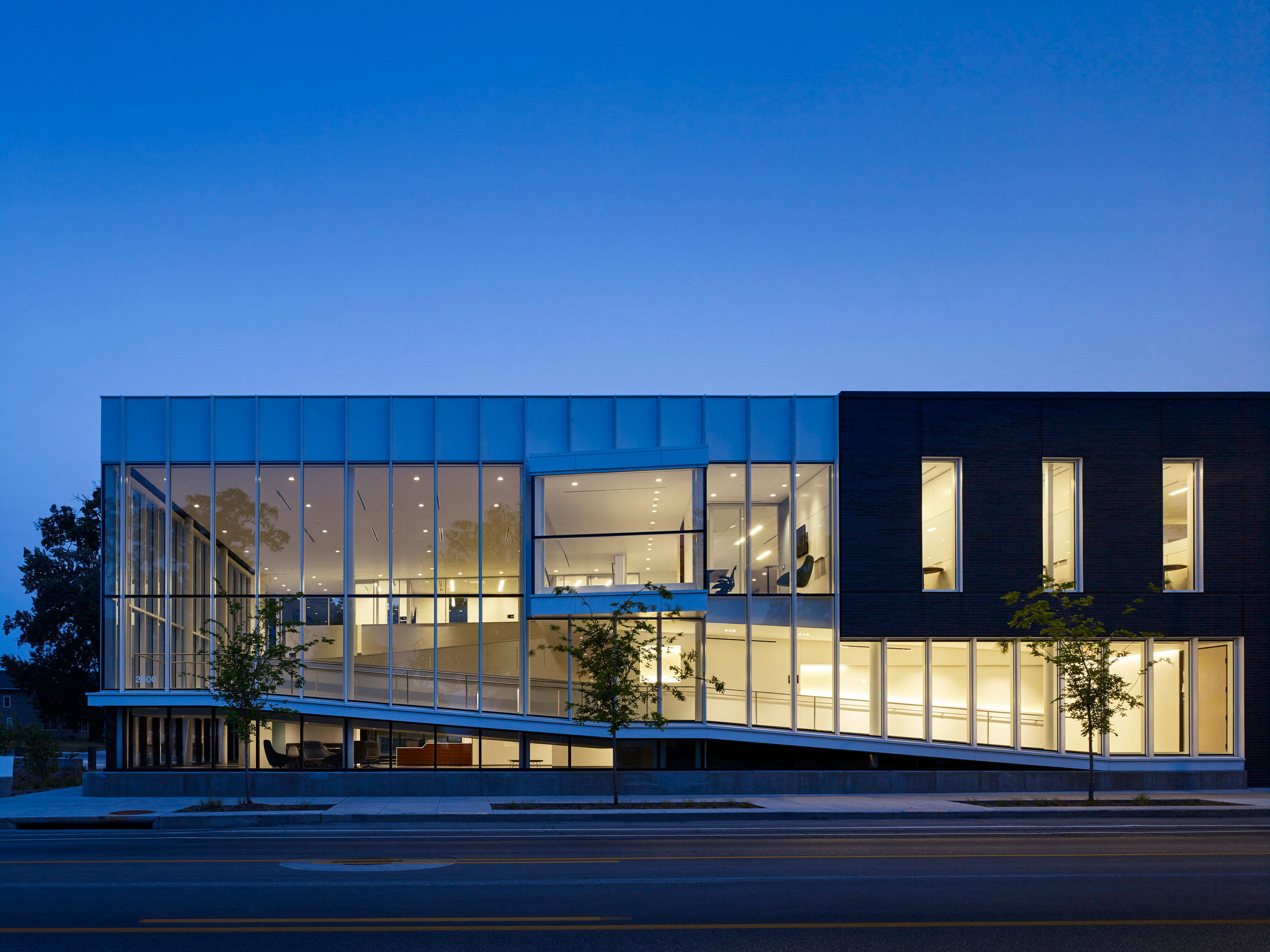
Awards
AIA COTE Top Ten Award
2024
The European Centre for Architecture Art Design and Urban Studies and The Chicago Athenaeum: Museum of Architecture and Design
Green GOOD DESIGN®
2023
AIA Kansas City
Merit Award – Architecture
2022
International Contemporary Furniture Fair
42nd Annual Interiors Awards Winner – Education
2022
AIA Iowa
Impact Honor Award
2022
AIA Iowa Excellence in Design
Honorable Mention
2021
AIA Central States Region
Honor Award – Architectural Project
2021
1000 Friends of Iowa
Best Development Award Program – Best of Show
2021
